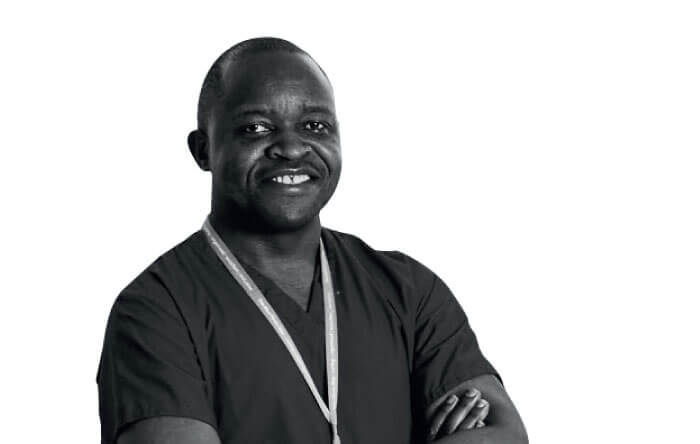
All healthcare professionals play a significant role in the delivery of ophthalmic services for patients in the UK. The aging population, increase in disease prevalence, and emergence of new therapies have all created multiple challenges and opportunities for non-medical staff. For example, the medical retina landscape continues to evolve because of innovative treatments. The Way Forward project from The Royal College of Ophthalmologists (RCOphth) has indicated that the rise in medical retina patients is clearly going to stretch both ophthalmic services and the support structures that exist to help those with visual loss. Inaction is not an option. Changes to the way we deliver ophthalmic services are inevitable as the number of consultant ophthalmologists fail to match rising patient numbers. This mismatch will create further demands in the delivery of treatments over the next few decades, particularly for chronic conditions that require long-term follow up.
Some aspects of the traditional roles of the ophthalmologist in the modern eye department have already been devolved. In the past decade, extended roles for healthcare professionals other than ophthalmologists in AMD and DME services have ranged from diagnostic, investigations interpretation and disease counseling to patient support, treatment and discharge. The macular clinics are protocol driven, making it safe and effective for all health professionals to assume more responsibility. What’s more, experienced, competent nurses often render a far higher patient satisfaction through full-circle treatment than when a patient’s treatment is divided between nurses and doctors.
The nurse-led intravitreal injection case study serves as a model for a more cohesive approach, and has revolutionized patient care and the role of the ophthalmic nurse. Evidence in medical literature has consistently highlighted the importance of early diagnosis and intervention, finding that ophthalmic nurses have made a significant difference by reducing waiting times for injection treatments. More than that, safety outcomes and patient experience have both been reported as above the national average.
Moorfields has taken the training lead for setting up non-medical delivered injection service, training more than 500 healthcare professionals other than ophthalmologists nationally and internationally. Education delivery has had an impact as far afield as South Africa, Australia, the US, Singapore, Hong Kong, Ireland, Finland, Denmark and Northern Ireland. Healthcare professionals other than ophthalmologists have taken the lead in driving innovation at busy outpatient clinics, with solutions that address long term follow-up challenges. An example of this is patient stratification between low risk and high risk, a delineation that creates multiple benefits, improving capacity and freeing up space in consultant-led clinics. Currently established non-medical innovations include stable AMD and wet AMD rapid access to treatment. Key clinical skills for health professionals other than ophthalmologists are mainly image interpretations, disease understanding and protocol adherence – all supported by the RCOphth’s Common Clinical Competence Framework. In these pathways, patients’ reactivation following disease stability or patients presenting with new wet AMD are now offered timely interventions in line with RCOphth guidelines.
The multi-skilled practitioners follow a one-stop model, reducing the burden of multiple hospital appointments for patients. Industry-led innovation through technological advances, such as cutting-edge diagnostic imaging equipment, has contributed to better disease understanding – but it has also been the key driver for nurse-led enhanced digital surveillance clinics. As these roles continue to develop, the issue of nurse competence and the legal and ethical implications of extending nursing roles are raised. Professional bodies such as the NMC and RCOpth advocate that nurses and doctors collaborate to ensure that appropriate standards of care are upheld.
As for high-impact enhanced digital surveillance clinics, health professionals other than ophthalmologists have played an integral role there too – whether reading ophthalmic imaging tests or reporting outcomes to the patients and their GPs. It’s been proved that regular audits led by other health professionals improve safety and patient experience outcomes. With service improvement, leadership in digital healthcare innovation is increasingly important. There are now optometrists and nurses leading innovation, alongside service improvement and other departments, such as the health foundation.
Other pathways – including diabetic eye disease – have established shared care models. Anecdotally, l have been part of this model, working with optometrists, diabetes nurse specialists and supervising consultant ophthalmologists. Our diabetes secondary assessment model is pitched towards patients presenting from retinal screening and consultant-led clinics. Shared care environments create and promote a multi-professional way of working. The Diabetes Nurse Specialist (DSN) provides diabetes education counseling for patients and optometrists or nurse consultants conducting clinical assessments and examinations, with treatments signed off by a supervising consultant.
Ophthalmic nurses play a vital role in disease prevention by promoting a healthy lifestyle, smoking cessation and disease stage counseling. By doing so, health professionals other than ophthalmologists empower patients and improve health outcomes – something that has been recognized by Public Health England, the NHS and the RCOphth. In conclusion, all health professionals make an enormous contribution to the provision of ophthalmic care – but maintaining a certain level of quality, training and development is critical. Offering opportunities for career progression will improve retention, staff morale and job satisfaction, while succession planning, role modeling and inspirational leadership are essential to maintaining a stable workforce.
